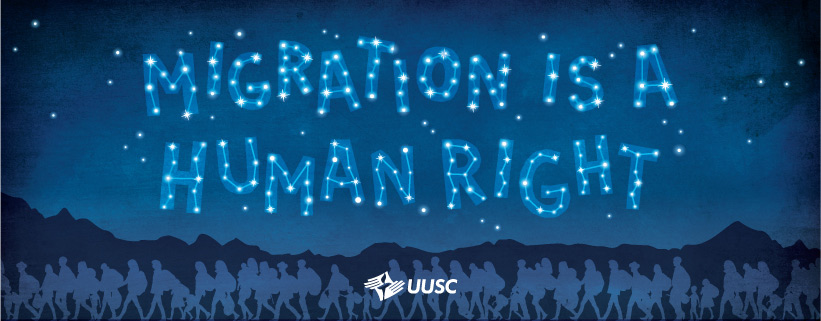 by the Journey to Asylum team
by the Journey to Asylum team
We are pleased to share that M recently received her work permit and started her first job in the U.S. She is working as a dishwasher at a downtown restaurant. We are also incredibly grateful to all the WUU volunteers who have stepped up to provide childcare. Without their help, M would not have been able to accept this job. Although we have found weekday childcare for her son, her daughter is on the waitlist for daycare and both children need care on Saturdays. More volunteers are needed! Please consider signing up here.
The journey that we have been on with M to get to this point has shown us how incredibly hard it is for an immigrant or someone without many resources to start a job in our country. Below we provide a window into the process, which is a struggle for so many, in hopes that we can all work toward change.
1) The work permit: Due to changes in the work permit rules made by the last administration, asylum seekers must wait a year before they can apply for a permit. An asylum seeker advocacy group filed a lawsuit and received a stay – meaning that its members could apply under the old laws. We helped M submit an application to be a member of this organization. Then her attorney helped her submit the application for the work permit after we got her passport photos. The permit was received about a month later.
2) Finding the job: M ideally needed a job with a consistent schedule during daytime hours to make childcare easier to find. She also needed a job that would not require much English and that is on a bus route. Kim Barbarji was able to find a dishwashing job for her through one of her contacts. The job fit all of the criteria, but the pay is low.
3) The bus: M had to learn how to take the bus and navigate the routes. She had to ask her new employer to adjust her schedule by a few minutes on each side so that she could make it to the bus stop in time to get the bus, which only comes by hourly. (She may lose pay for missed time.)
4) Childcare: Her son needs before and after school care, her daughter needs all-day care, and they both need care on Saturdays. We have gotten her son into county-provided care and her daughter is on the waitlist for free childcare. In order for both to apply, the kids had to be taken for their annual physical, have TB tests, and provide these records along with proof of residency and birth certificates (scanning and emailing or driving hard copies to the Rec Center). We made that all happen in a matter of days and while M was at work (not something she could have easily done herself with no transportation and without missing work). We also negotiated for a scholarship for six months (hard to do if you don’t speak English). Until the waitlist comes through, volunteers have signed up, attended a brief online orientation, and are providing care. More help is needed. In addition to babysitting, we also need people to provide transportation to and from Matoaka Elementary School for the daycare on Fridays. Sign up here.
5) Depositing checks and paying taxes: Most banks require a social security number to set up an account. M’s lawyer helped her apply for one, so now we wait for it to arrive. When it comes time to pay taxes, in order to qualify for earned income and child tax credits, the children need social security numbers. The only way for them to get those is to apply for work permits (even though they are too young to work). So we took them for passport photos so their attorney can apply for their work permits.
6) Driver’s license: M’s life will be a lot easier if she has her own transportation. Now that she has a work permit she is eligible for a driver’s license. She has to study for and take the permit test in Spanish. The DMV is scheduling appointments three months out, but occasionally has cancellations. So we had to check several times a day to get an earlier appointment. Then, of course, she needs an appointment before work and someone has to take her. She’ll then have the permit for 60 days before taking the driving test. She’ll also need to be saving her money for a car and insurance.
All the other aspects of her life (e.g., tutors, therapists, English classes) had to be rearranged. And all of these steps required volunteer interpreters and transportation.
By accompanying M through this arduous process, we’ve gotten a first hand look at how hard it is to “get a job” in America. In addition to the accompaniment work that we are doing, we must advocate for systemic changes that could make each of these steps easier – from more public benefits available to asylum seekers, to easier processes and applications, to a more comprehensive public transportation system. These are all immigrant justice issues.
